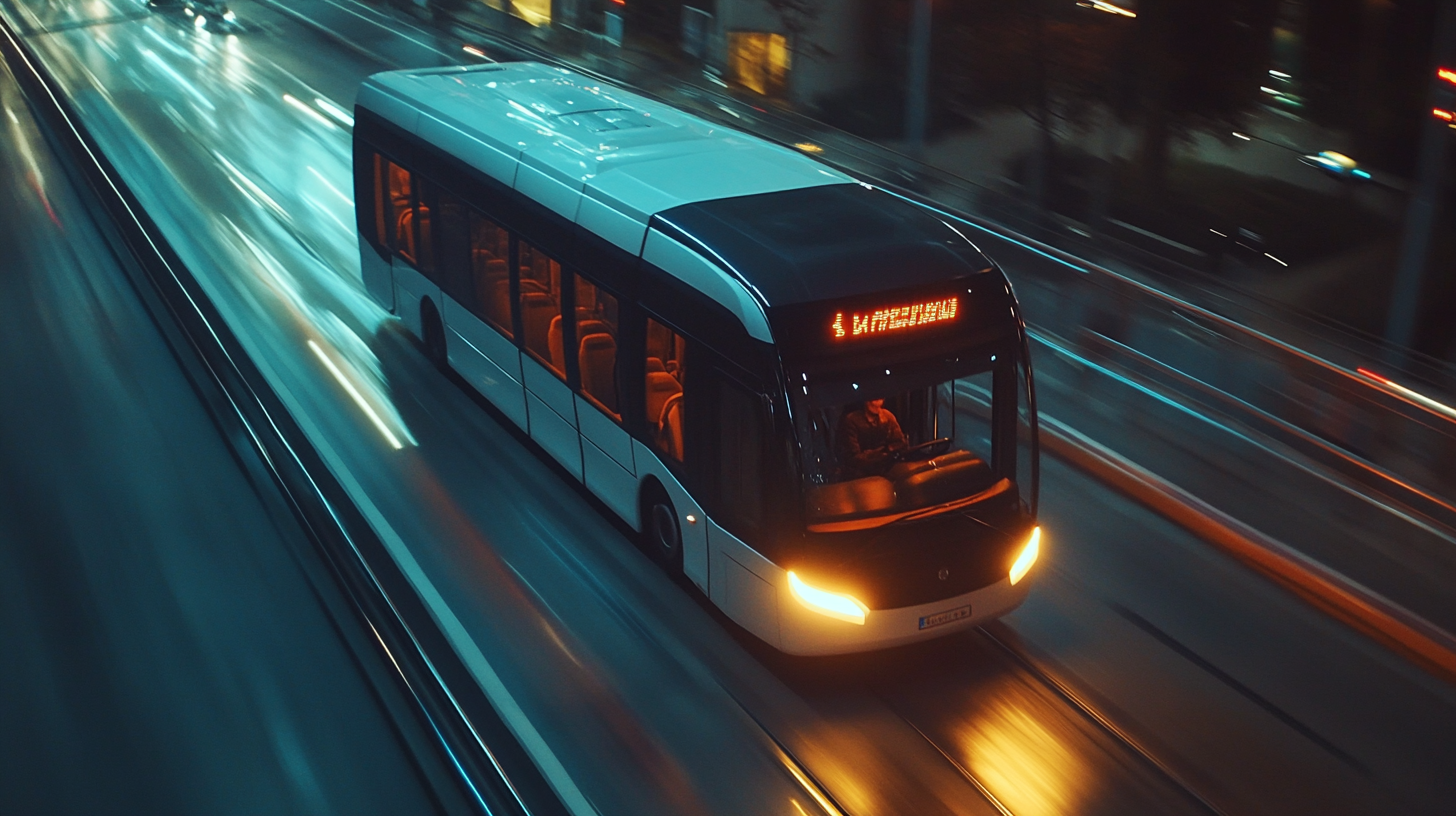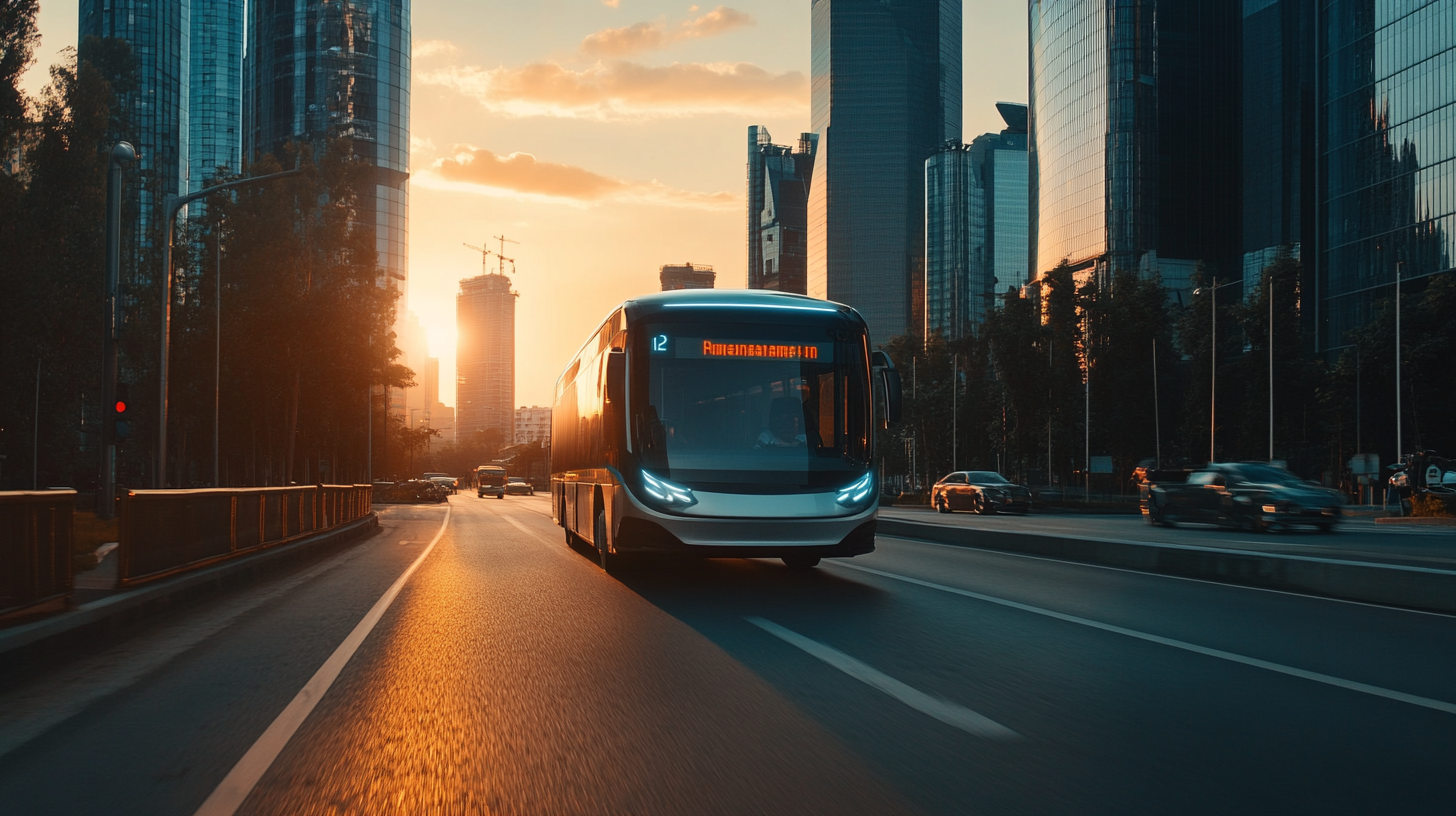Shuttle Bus Rental: Driving Towards a Sustainable Future in Transportation
In recent years, the transportation industry has witnessed a significant shift towards sustainability, driven by both environmental concerns and urban congestion. Shuttle bus rental services have emerged as a practical solution to these challenges, providing an efficient mode of transport that reduces individual car usage and lowers greenhouse gas emissions. According to a report by the American Public Transportation Association (APTA), public transit saves 4.2 billion gallons of gasoline annually and reduces the carbon footprint significantly. This shift not only alleviates traffic congestion but also encourages a growing number of cities to invest in public transport infrastructure, aligning with global efforts to combat climate change.
As organizations and communities seek greener alternatives, the demand for shuttle bus rental has surged, catering to a variety of needs from corporate events to university transport systems. A study by the International Bus and Motorcoach Association (IBMCA) indicates that buses produce significantly fewer emissions per passenger mile compared to cars, making shuttle buses an environmentally friendly choice. By opting for shuttle bus rental, businesses and individuals can contribute to a sustainable future in transportation, highlighting the pivotal role that this service plays in shaping a greener urban landscape.

Benefits of Shuttle Bus Rentals for Eco-Friendly Transportation
In recent years, the importance of eco-friendly transportation options has gained significant traction, especially in urban areas struggling with pollution and traffic congestion. Shuttle bus rentals have emerged as an effective solution for promoting sustainable transportation. By providing shared rides, shuttle buses can significantly reduce the number of individual vehicles on the road. According to a study by the American Public Transportation Association, public transit, including shuttles, can reduce greenhouse gas emissions by 45 million metric tons annually, contributing to cleaner air and healthier communities. Moreover, shuttle bus rentals are instrumental in addressing transportation challenges for families considering educational opportunities outside their immediate vicinity. A report from the National Center for Education Statistics highlights that 25% of families face transportation barriers when selecting schools further from home. By offering shuttle services, schools and communities can ensure that all students have access to quality education, regardless of distance. This not only supports family choice but also encourages the use of shared transportation, further reducing the environmental impact. Additionally, shuttle buses can be outfitted with eco-friendly technology, such as electric or hybrid engines, further enhancing their sustainability credentials. The Global EV Outlook 2023 indicates that electric buses can reduce operating costs by up to 60% compared to traditional diesel buses. This economic viability, combined with environmental benefits, makes shuttle bus rentals an attractive option for municipalities and organizations aiming to foster eco-friendly transportation solutions while also supporting social equity in education.

Innovative Strategies for Enhancing Sustainability in Shuttle Services
Shuttle bus services play a pivotal role in promoting sustainable transportation. By integrating innovative strategies, these services can significantly reduce carbon footprints while enhancing accessibility. In the San Francisco Bay Area, a region recognized for its technological advancements, the convergence of cloud computing, big data, and IoT is paving the way for smart mobility solutions. This evolution not only improves the efficiency of shuttle services but also ensures they align with sustainability goals.
Adopting practices such as route optimization through advanced analytics can dramatically enhance the carbon footprint of shuttle operations. With the help of real-time data, shuttle services can adjust routes based on passenger demand and traffic conditions, reducing unnecessary emissions. Furthermore, leveraging electric and hybrid buses within these fleets can further contribute to a cleaner environment. This eco-conscious approach not only appeals to environmentally aware consumers but also meets growing regulatory demands for greener transportation options.
The future of shuttle bus services is bright, particularly when they embrace innovative technologies that promote sustainability. By following the lead of regions like the Bay Area, which continually drive innovation in transportation, shuttle services can play a crucial role in creating a more sustainable and efficient transportation landscape. As cities prioritize sustainability in their infrastructure, the adoption of eco-friendly shuttle bus systems becomes a vital part of the solution to contemporary transportation challenges.

The Role of Electric and Hybrid Buses in a Greener Future
The shift towards sustainable transportation is more crucial than ever, and electric and hybrid buses are leading the way in this transformative journey. These innovative vehicles significantly reduce greenhouse gas emissions and dependence on fossil fuels, making them a key player in combating climate change. Electric buses, powered entirely by batteries, offer a zero-emission alternative that is not only better for the environment but also provides quieter rides and lower operating costs. Meanwhile, hybrid buses, which combine traditional gas or diesel engines with electric power, serve as a bridge toward full electrification, allowing for more flexible implementation in various urban contexts.
In urban settings, electric and hybrid buses contribute to cleaner air and improved public health by lowering the levels of particulate matter and other pollutants. Cities that have embraced this technology have seen substantial benefits, including reduced noise pollution and enhanced quality of life for their residents. Furthermore, many electric buses come equipped with advanced features that optimize efficiency and performance, ensuring reliable service that meets the demands of modern public transportation systems.
Investing in electric and hybrid buses not only helps in achieving sustainability goals but also fosters economic growth. By reducing fuel costs and maintenance expenses, these vehicles provide long-term savings for transit authorities. Additionally, the growing demand for sustainable transportation options boosts job creation in the manufacturing and maintenance sectors, paving the way for a greener economy. As cities explore their transportation futures, electric and hybrid buses stand out as viable and impactful solutions in the transition to a more sustainable world.

Cost Efficiency and Environmental Impact of Shuttle Bus Solutions
Shuttle bus rental has emerged as a pivotal player in the quest for cost-efficient and environmentally sustainable transportation solutions. According to a recent study by the American Public Transportation Association (APTA), for every dollar invested in public transportation, communities can expect an average of four dollars in economic returns. This statistic underscores the financial advantages of adopting shuttle buses, especially for businesses and organizations seeking to optimize transportation costs while promoting eco-friendly practices.
Moreover, shuttle buses significantly reduce the carbon footprint compared to individual car travel. The Environmental Protection Agency (EPA) reports that public transportation can produce, on average, 45% less carbon dioxide per mile than private vehicles. By utilizing shuttle buses for group transport, companies can not only streamline their logistical costs but also contribute to a decrease in greenhouse gas emissions. For instance, a study by the International Council on Clean Transportation (ICCT) found that replacing just one traditional private car with shared shuttle bus services could mitigate approximately 0.8 metric tons of CO2 emissions annually.
In addition to environmental benefits, shuttle buses offer enhanced efficiency in managing large volumes of passengers. The Transit Cooperative Research Program (TCRP) indicates that utilizing shuttle services can increase passenger capacity by 50% compared to conventional travel methods. This capacity boosts operational efficiencies for events, corporate functions, and daily commutes, showcasing the dual impact of cost savings and environmental stewardship inherent in shuttle bus solutions. By choosing shuttle bus rental, organizations not only embrace a sustainable future but also thrive in an economically advantageous framework.
Community Engagement and the Importance of Sustainable Transport Choices
Sustainable transportation choices play a crucial role in shaping our communities and minimizing environmental impact. According to the International Transport Forum, the transport sector accounts for approximately 25% of global CO2 emissions, making the transition to sustainable transport more urgent than ever. By fostering community engagement around shuttle bus rental services, we can promote eco-friendly alternatives that reduce reliance on personal vehicles, ultimately leading to enhanced air quality and decreased traffic congestion.
Community engagement can take many forms, from public consultations to collaborative planning sessions. A study by the American Public Transportation Association found that neighborhoods with access to public transportation see a 50% reduction in vehicle miles traveled per household. By utilizing shuttle buses, communities can create efficient, shared transportation solutions that not only save costs but also enhance social connections among residents. This shared approach to travel helps to build stronger relationships and promote a culture of sustainability.
Furthermore, the implementation of shuttle bus services can significantly enhance access to essential services for underserved populations. The National Association of City Transportation Officials reports that improving transit accessibility can boost local economies by 15%. As communities engage in discussions about their transport choices, they can prioritize shuttle bus rentals that champion inclusivity, paving the way for a transportation system that values both sustainability and social equity.





